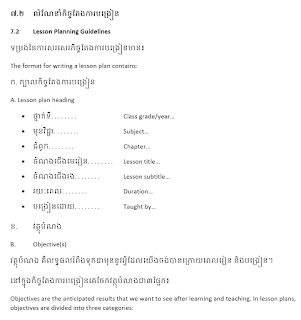You'd think by hot season #8, I'd be used to this. It's certainly getting more predictable: lows in the 80's, highs in the upper 90's, high humidity, extreme UV index, RealFeel consistently 15 degrees above the actual temps. I've improved at navigating my fatigue, mood swings, and lagging motivation, and given up on trying to sleep without air conditioning.
But when I first arrived, another expat described Cambodia as "never boring," and my adopted homeland has made a valiant effort to live up to this slogan. This hot season is breaking heat records, and a drought means the hydroelectric power plants can't keep up, leading to frequent power cuts nationwide. Last time I faced this many power cuts was my very first hot season in 2010, likewise a doozy, when my school moved to an under-powered neighborhood. We lost power daily, but other areas were fine.
This year the government announced that they'd flip-flop everyone's cuts between mornings and afternoons, 6 days a week for 3 months (through May), until the rains replenish the dams. That's been pretty accurate at my house so far, but others throughout town have experienced many nighttime outages as well as water shortages. At least it's somewhat predictable, and plenty of nearby cafés have generators if I really need Internet or a break from the heat. Many people have it far worse than I do: farmers, small business owners, babies with incessant heat rash, even Logos teachers trying to keep their students alert and learning.
This year the government announced that they'd flip-flop everyone's cuts between mornings and afternoons, 6 days a week for 3 months (through May), until the rains replenish the dams. That's been pretty accurate at my house so far, but others throughout town have experienced many nighttime outages as well as water shortages. At least it's somewhat predictable, and plenty of nearby cafés have generators if I really need Internet or a break from the heat. Many people have it far worse than I do: farmers, small business owners, babies with incessant heat rash, even Logos teachers trying to keep their students alert and learning.
Lately, whenever the power has gone out and I've sat sticky with sweat, trying to work, my mind has drifted to the outlandish plans I used to make with my Logos teacher roommates. "Let's take our mattresses and go sledding down the stairs!" "We're gonna dump shredded coconut all over the floor and make snow angels!" But hot season during my Logos days always found us in end-of-year survival mode, juggling extra events like banquet in addition to finals and report cards. Just ask my poor roommate with a May birthday - parties rarely made the cut. I think the closest we ever came to a winter party was in 2012, watching "March of the Penguins," and even that was in late May after school got out.
This hot season has been less busy and much less traumatic than that one. At the same time, the heat's been fraying everyone's nerves. So after the Khmer New Year break, I decided - why not really do it? Why not throw a party? My roommate was out of town (hosting's not her favorite), and I had no plans, so last weekend seemed like as good a time as any. In the US, if I started announcing a party 2 days in advance, I'm not sure anyone would come. Here, it's no problem. I ended up having 15 people representing 9 nationalities at my party! But to my amazement, we had no parking issues in the tiny alley downstairs where my neighbors and I cram our motos. And there were just enough chairs for everyone, scattered at tables across the balcony as well as squeezed into my small kitchen.
I called it an Arctic Blast Party. Here's my description:
Is this hot
weather giving you cold feet about your commitment to Cambodia? Are power
outages melting your smile into a frown? Do you find yourself with a sudden
burden for the people of Iceland? Come join the cool kids and party like a polar bear! Rekindle your love for the Kingdom of Wonder with
frozen snacks, frost-themed games, and a frigid movie.
My plan was to vote on a movie, but we didn't even get that far. However, we did a Penguin Relay with ice-filled socks between our legs to represent penguin eggs. We competed on polar trivia and bobbed for apples and various tropical fruits in icy-cold water. I decided to skip the snow sculpture competition, but the 4 kids who came played with the fake snow (I used recipe #2). Several adults joined in the kids' paper snowball fight, and we all gorged ourselves on sundaes.
 |
| The "challenge" fruit-bobbing items got the most points... and multiple people managed to snag them! |
This was the first party I've pulled off alone, and a pretty ambitious one at that. Some things didn't go as well as they could have, while others got left out entirely. I gave up keeping score after a while, took no photos (there could have been some great ones), and never declared a winning team or handed out the prizes. Other things like dinner went well only because people pitched in unasked to set up, clean up, or manage the kids. But one sweet moment stood out. For all my endeavors to have fans and ice available to maintain the wintry theme, we ended up outside, away from all of that. Clustered around the sundae bar on the balcony, we chatted and sang to my neighbor's guitar, punctuated with children's laughter. The irony of sweating at my Arctic Blast Party did not escape me, but I wouldn't have had it any other way. It gave me joy to see my friends making friends with each other.
 |
| A guest, Keo Mey, took this photo :) |




























